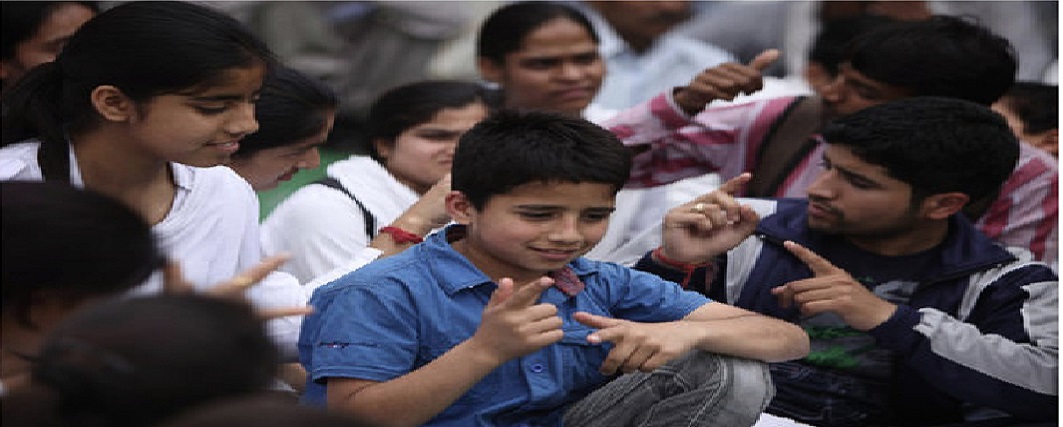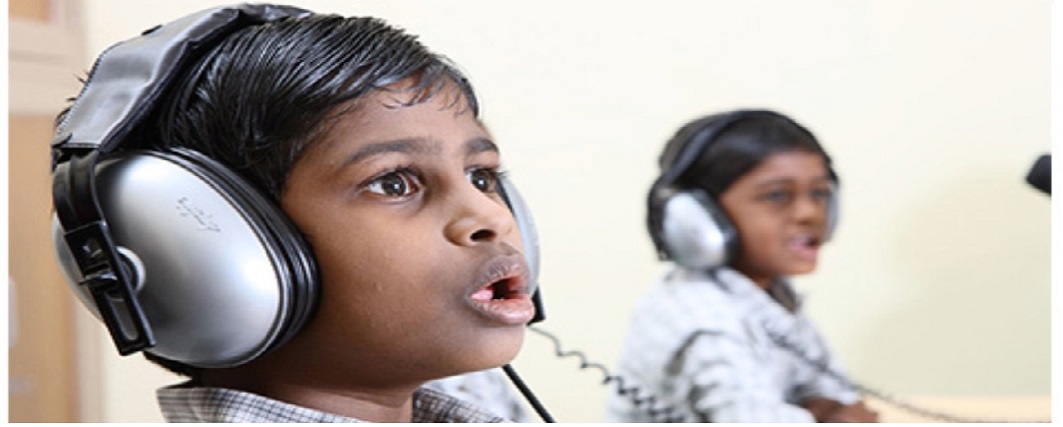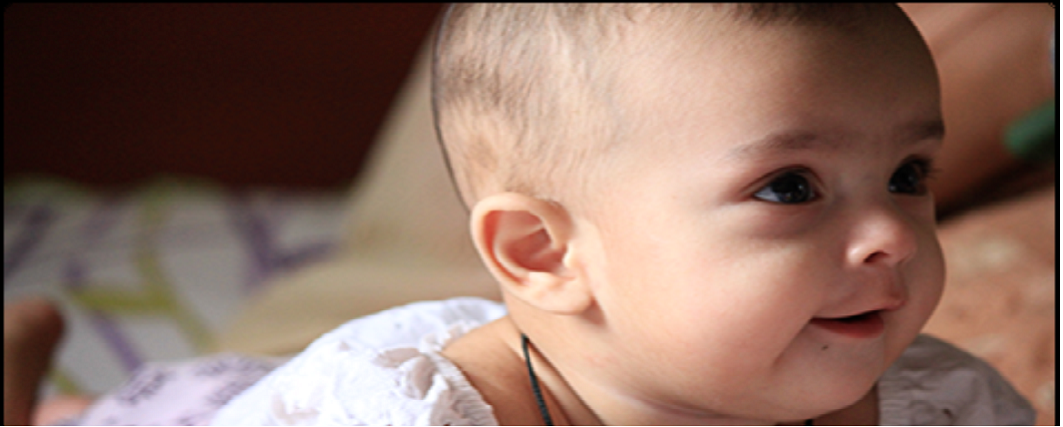Children
Babies and children should reach milestones in how they play, learn, communicate and act. A delay in any of these milestones could be a sign of hearing loss or other developmental problem.
Symptoms in Babies
- Does not startle at loud noises.
- Does not turn to the source of a sound after 6 months of age.
- Does not say single words, such as “dada” or “mama” by 1 year of age.
- Turns head when he or she sees you but not if you only call out his or her name. This sometimes is mistaken for not paying attention or just ignoring, but could be the result of a partial or complete hearing loss.
- Seems to hear some sounds but not others.
Symptoms in Children
- Speech is delayed.
- Speech is not clear.
- Does not follow directions. This sometimes is mistaken for not paying attention or just ignoring, but could be the result of a partial or complete hearing loss.
- Turns the TV volume up too high
- Often says, “Huh?”
Who tests hearing in children?
A specialist who tests a person's hearing is called an audiologist. An audiologist has an advanced degree (minimum of master's degree) in diagnostic hearing testing techniques and auditory rehabilitation for children and adults. However, because testing hearing in children requires specific equipment, setup, and training, not all audiologists test children. When a child is referred for a hearing evaluation, it should be confirmed at the time of scheduling that the testing audiologist has a pediatric specialty and the appropriate setup to test hearing in children.
Can very young children have their hearing tested?
A child of any age can be tested with the appropriate hearing test. The type of test utilized depends on the child's age in years or developmental level. Some hearing tests require no behavioral response from the child, while other tests utilize games that entice a child's interest. The key is to find the right test method for each child.
Causes of Hearing Loss in Children
- Otitis Media
Otitis media is an inflammation in the middle ear (the area behind the eardrum) that is usually associated with the buildup of fluid. The fluid may or may not be infected.
Symptoms, severity, frequency, and length of the condition vary. At one extreme is a single short period of thin, clear, noninfected fluid without any pain or fever but with a slight decrease in hearing ability. At the other extreme are repeated bouts with infection, thick "glue-like" fluid and possible complications such as permanent hearing loss.
Fluctuating conductive hearing loss nearly always occurs with all types of otitis media. In fact it is the most common cause of hearing loss in young children.
How can I tell if my child might have otitis media?
Even if there is no pain or fever, there are other signs you can look for that may indicate chronic or recurring fluid in the ear.
- Lack of Attention
- Wanting the television or radio louder than usual
- Misunderstanding of directions
- Lethargic
- Unexplained irritability
- Pulling or scratching at the ears
Diagnosis and Treatment
After your child is tested, the audiologist will discuss your child's diagnosis with you, along with recommendations for appropriate treatment.
- If your child has a hearing loss, we will refer you to a physician in the PAMF Department of Ear, Nose & Throat.
- Depending on the nature of the disorder, a hearing aid or other amplification device may be necessary. The audiologist will guide you and your child through every step of the selection, fitting, use and care of these devices.
- For a child diagnosed with severe hearing loss, we provide case management and referrals to appropriate resources of Ear, Nose & Throat specialists, regional centers of education and speech pathology, and habilitation/rehabilitation centers from ALPS and others.



